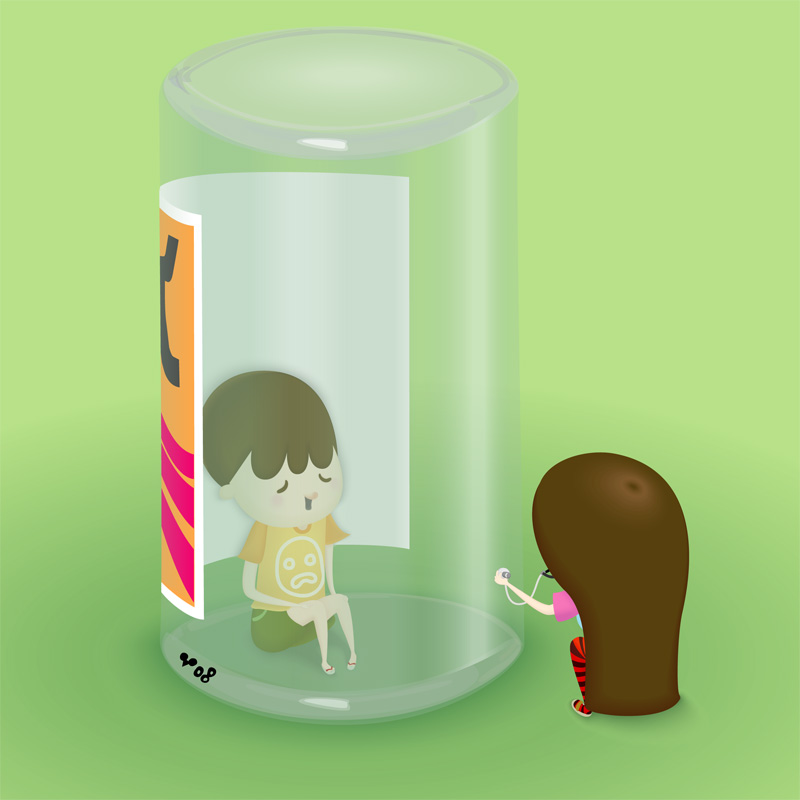In a recent editorial in the BJPsych Bulletin, Paul Crichton, Havi Carel, and Ian James Kidd review how practitioners’ preconceived notions about psychiatric diagnoses can facilitate or impede patient access to sufficient care. Extrapolating from past research detecting compromised patient epistemic capital (perceived function as a knower, reasoner, and questioner) in the context of a medical disorder, Crichton and colleagues explored the possibility of a similar vulnerability in those diagnosed with psychiatric conditions.
“[Epistemic injustice] typically arises when a hearer does not take the statements of a speaker as seriously as they deserve to be taken,” the researchers explain. “The prime case of epistemic injustice is testimonial: the hearer deflates the level of credibility she gives the speaker because she is (often unconsciously) prejudiced against the social group to which the speaker belongs. Common examples include sexism and racism.”

Prejudicial stereotypes may be detrimental to trust in therapeutic relationships regardless of practitioner intent or self-perceived commitment to social justice. According to Crichton and team, practitioner assumptions about the lived experiences of patients may supersede client-perspectives on their own life experiences more often than is widely acknowledged in clinical practice.
Further, practitioner assumptions may prevent patients with vast knowledge of themselves and the world around them from being seen as credible. Power differentials in clinical settings, and often fundamental differences between the belief systems of patients and practitioners, contribute to the process of individuals with psychiatric conditions being systematically undermined.
The authors attribute patterns of unevenness in practitioner-patient communication mainly to epistemic injustice, a term introduced initially by philosopher Miranda Fricker. Patients are often asked to contribute what Frick termed ‘testimonial knowledge’ during appointments, and the perceived credibility of testimonial knowledge is often dependent upon preconceived judgments.
The paternalistic notion of knowing what’s best for a patient, and stereotypes surrounding psychiatric disorder suggesting that it can be hard for patients to “think straight” and “get a grip” perpetuate the undermining of patient self-knowledge. The authors hypothesize three primary factors contributing to epistemic injustice, including:
- “problems associated with, and partly caused by, […] mental disorder,
- the higher value placed by health professionals on ‘hard’ or objective evidence compared with patient reports,
- the entrenched negative stereotypes associated with mental disorders.”
While credibility may be context-specific, and practitioners may be formally trained in the technical parameters of the conditions that they are detecting and treating in patients, undermining patients’ lived experiences can challenge the strength of clinical decision-making. Dismissal may be perceived by patients, internalized, and may ultimately be detrimental to health outcomes.
Using “schizophrenia” and “dementia” as examples of stigmatizing diagnoses, Crichton and team describe the harm in underestimating the credibility of sufferers, noting that these patients may be more reliable informants than is often assumed.
The authors recommend that “medical students should be taught to believe what psychiatric patients tell them unless there is a good reason not to do so.”
Schwartz rounds, which have gained recent traction in medical programs in the UK, provide medical students with the opportunity to gain experience with existential, relational, and personal features of their cases. Adopting a similar standard in the United States, in combination with increased attention to the value of multidisciplinary teams in clinical settings, may be critical in combatting epistemic injustice.
****
Crichton, P., Carel, H., & Kidd, I. J. (2017). Epistemic injustice in psychiatry. BJPsych Bulletin, 41(02), 65-70. (Link)















“The authors recommend that ‘medical students should be taught to believe what psychiatric patients tell them unless there is a good reason not to do so.'”
How embarrassing the concept of mutual respect must be taught to medical students. But, yes, the doctors do need to be taught this. Once my medical records were handed over, I was appalled and disgusted to read about all my psychiatrist’s delusions about who I am, and all his “not believed by doctor” problems.
I had to leave that loony psychiatrist, after I confronted him with all his delusions, and he thought declaring my entire life to be a “credible fictional story” was going to fly with me. I’ve never met more delusional, delusions of grandeur filled, disrespectful, and stupid people than psychiatrists and psychologists.
When psychologists and psychiatrists get their information about a person from pedophiles, who quote tall tales from four year olds, those “mental health professionals” are going to make themselves look like fools.
I hadn’t realized psychology and psychiatry are merely gossip masquerading as medicine. And that the primary actual function of their industries was covering up child abuse. But today, “the prevalence of childhood trauma exposure within borderline personality disorder patients has been evidenced to be as high as 92% (Yen et al., 2002). Within individuals diagnosed with psychotic or affective disorders, it reaches 82% (Larsson et al., 2012).”
A recommendation for the “mental health professionals,” get the “V Codes” reimbursable by the insurance companies so you may help child abuse victims and their concerned parents, rather than just misdiagnose them with your invalid DSM disorders, then poison them. Remember, “first and foremost, do no harm?”
Report comment
I really don’t like the sound of “epistemic injustice”.
Ask Google the definition of paternalism, and you will get something like this…
” the policy or practice on the part of people in positions of authority of restricting the freedom and responsibilities of those subordinate to them in the subordinates’ supposed best interest.”
Given an authority achieved through usurpation, there is always insubordination.
Ask Google for the definition of jargon, and you get this…
“special words or expressions that are used by a particular profession or group and are difficult for others to understand.”
When paternalism is the problem, the lingo is just a way of stirring up the mud of confusion from the bottom of the creek bed. (Another way of using language as a tool of oppression. Language that could also be used as a tool for liberation, however, not in the oppressor’s hands.)
Report comment
Psychiatric diagnosis is epistemic injustice.
Report comment
“Epistemic injustice” sounds a lot like paternalism, bigotry and prejudice to me. Why not call it what it is?
Report comment
Surely we go to mental health ‘professionals’ precisely because they have knowledge that we do not – the knowledge gap is what we expect them to fill, in a way that helps us.
To me, the problem is more that the knowledge provided is such a mismatch to the experience, that it is not relatable and makes no sense to the customer. Worse, there is no ‘accepted’ alternative source.
As a result, in large part, we don’t feel heard because our description of the experience is dismissed technically, more than paternalistically, I suspect.
Report comment
It’s often because of extraordinary or extraordinarily bad situations that people end up telling their history to a so-called “mental health” “professional.” It’s wicked of them not to believe that they are told.
Lack of credibility, which I guess is an aspect of epistemic injustice, extends outside the therapeutic dyad. A psychiatric diagnosis gives one’s family and their associates license to ignore or discount the diagnosed person’s opinions, wishes, and complaints. This is especially nasty because, in so many families, it’s the honest (and hopelessly naïve) one who is scapegoated, driven to emotional despair and ultimately into psychiatry by a pack of cooperating sociopaths, and possibly some mentally-deficient dupes under their control, known as their family.
Report comment